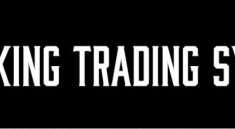Starting a small business at home has become an increasingly popular option for entrepreneurs due to its numerous benefits. By running a business from home, one can enjoy greater flexibility, lower startup costs, and the elimination of commuting time and expenses. These benefits, in turn, can lead to a greater work-life balance, increased productivity, and better control over the business’s budget.
One of the primary advantages of running a business from home is the ability to maintain a healthy work-life balance. Home-based businesses allow entrepreneurs to structure their work schedules around their personal lives, which can lead to increased job satisfaction and reduced stress. Additionally, working from home eliminates the time and costs associated with commuting to a traditional office, which can further enhance one’s quality of life.
Home-based businesses can also be more productive than those with traditional office settings. This is because entrepreneurs can often create a customized office space that is better suited to their work style and needs. Furthermore, there is no need to spend time on activities such as commuting, attending meetings, or engaging in water cooler conversations, which can lead to increased focus and productivity.

Types of Home-Based Businesses
When it comes to starting a home-based business, there is an array of options available to aspiring entrepreneurs. From service-based businesses like personal training and house cleaning to online ventures such as affiliate marketing and dropshipping, the possibilities are endless. In this article, we’ll explore the various types of home-based businesses that can be started from the comfort of your abode.
Online Businesses
Starting an online business from the comfort of your own home is an increasingly popular way to enter the world of entrepreneurship. From e-commerce shops and affiliate marketing to dropshipping and blogging, the options for online businesses are endless.
One of the biggest advantages of starting an online business is the ability to work from home – saving both time and money on commutes to a traditional office. Additionally, online businesses offer flexibility in terms of working hours and allow for scaling of the business in ways that may not be possible with a brick-and-mortar storefront.
When it comes to creating a website for your online business, the options are numerous. E-commerce stores are a great option for selling products directly to customers, while dropshipping allows you to sell products from a supplier without the need for managing inventory or shipping. Affiliate marketing is another avenue to explore, where businesses partner with other companies to generate revenue. Blogging can also be a lucrative option, offering the opportunity to create a loyal following and build partnerships with other businesses.
Selling digital products online is another popular and lucrative choice for online businesses. Digital products, such as courses, videos, ebooks, templates, and software, can be replicated at minimal cost and require no inventory management or shipping. Read more from ytvideoreviews. This means once the initial product is created, it can be sold repeatedly – often at a high-profit margin.
Retail Businesses
Retail businesses have become increasingly popular in recent times, particularly with the advent of the Internet. Starting a retail business from home offers immense advantages over traditional brick-and-mortar establishments. Operating a home-based business reduces overhead costs, allows greater flexibility, and offers significant opportunities for growth.
There are different types of home-based retail businesses that entrepreneurs can choose from. One common type is an e-commerce store, which entails creating an online platform to sell goods or services directly to customers. E-commerce stores have gained enormous popularity in the last decade, mainly due to the growing number of online shoppers. Examples of successful e-commerce stores include Shopify, Etsy, and Amazon.
Dropshipping is another type of e-commerce business that has become popular in recent years. Entrepreneurs can operate dropshipping businesses from home with minimal investment. Dropshipping allows retailers to sell products without holding inventory and can be a viable option for those looking to start an e-commerce business without the need for significant upfront investment.
Service-based businesses are another popular option for entrepreneurs looking to start a retail business from home. Service-based businesses such as cleaning services, personal training, and catering services offer entrepreneurs the flexibility to work at their own pace and with low startup capital. Cleaning services, for instance, require minimal startup costs, and by offering quality services, entrepreneurs can quickly gain steady clients for their businesses.
Real estate is another service-based business that has shown great success as a home-based business. Using your home as an office, real estate agents can promote their services online, build a reputation, and grow their customer base. Real estate is an excellent service business option because it is often insulated from downturns as people still need housing irrespective of economic conditions.
Service-Based Businesses
Service-based businesses are a great opportunity for entrepreneurs who want to start a home-based business. There are many different services you can offer from the comfort of your own home to businesses and individuals alike. With the world becoming increasingly digital, there is an even higher demand for digital services, such as graphic and web designers, virtual assistants, and social media managers.
One thing to keep in mind is that some service-based businesses have more income potential than others. It’s important to research the market to find the best fit for you and your skills. If you have prior marketing experience, you may consider offering specialized online services to other businesses. For example, you could offer email marketing services, social media advertising, or search engine optimization.
When starting a service-based business, it’s important to have a website and a strong online presence. You’ll want to make sure you have a professional online portfolio that showcases your work and services. Additionally, make sure you have a process in place for communicating with clients and managing projects.
Franchises
Are you interested in starting a small business from home but not sure where to begin? Have you considered investing in a franchise? Franchises can be a great option for those looking to start a home-based business as they offer a proven business model and brand recognition.
So, what exactly is a franchise? Essentially, a franchise is a business model where a company (the franchisor) allows an individual or group (the franchisee) to operate a business using their brand, products, and services. In exchange, the franchisee pays an initial fee and ongoing royalties to the franchisor.
One of the main advantages of investing in a franchise is that the business model has already been established. This means that there is less risk involved as the franchisee is operating under a proven system. Additionally, franchises often offer training and support to franchisees, which can be beneficial to those without prior business experience.
Developing Your Business Plan
Developing Your Business Plan: When starting a small business, a solid business plan is crucial for success. A business plan serves as a roadmap for your business, outlining your goals, strategies, financial projections, and more. It helps you establish a clear direction and stay on track as you navigate the challenges of entrepreneurship. In this article, we’ll take a look at the key elements of a comprehensive business plan and how to develop one that sets you up for success.
Defining Your Goals
Starting a home-based business can be an exciting and rewarding venture. However, to make it successful, it is crucial to set specific goals that are achievable and realistic. Defining your business goals is not only helpful but also an essential step toward ensuring the long-term success of your business. Here are some steps toward defining your goals for your home-based business:
The first step to defining your business goals is to identify what you want to accomplish. Think critically about what you want to achieve from the business. Is it financial independence, work-life balance, or fulfilling a passion? Once you determine what you want, you can start developing goals that align with your vision and priorities.
To make your business goals more concrete, ensure that they are SMART goals. Specific, measurable, achievable, relevant, and time-bound goals help you stay on track. SMART goals give you a clear picture of what you want to achieve and the timeline for achieving them. For instance, instead of saying “I want to grow my business,” a SMART goal would be “increase my client base by 20% in the next six months.”
Once you have defined your SMART goals for your home-based business, determine the specific actions necessary to achieve them. Break down your goals into a series of manageable steps with specific deadlines. It’s essential to be realistic and specific about each step you need to take and the time frame for completion.
Defining your goals is just the beginning of the journey toward successfully running a home-based business. Regularly measuring progress against your SMART goals is crucial to help you stay on track and adjust your strategies if necessary. Keeping a record of your progress and measuring your success against your business goals is a powerful tool that can help you identify areas of growth and potential pitfalls.
Creating an Outline For Your Plan
Having a solid business plan is essential for any entrepreneur looking to start a successful small business from home. It serves as a roadmap for the business, helping to clarify the vision and mission of the business, map out the financial projections and costs, and solve any potential obstacles in advance. However, creating a complete business plan can be a daunting process, which is why creating an outline for your plan can help simplify the process and ensure that all crucial elements of a winning business plan are included.
Researching the Market and Competition
When starting a home-based business, researching the market and competition is a critical step toward success. Before launching your business, you need to have a better understanding of your target audience, their needs, and their preferences.
To accurately research the market, start by reviewing existing sources like industry reports, census data, and market research studies. This will give you a general idea of the market size, trends, and potential opportunities. You can then conduct your analysis by using online surveys, focus groups, or one-on-one interviews to gather more specific data.
As you gather information, focus on identifying your ideal customer’s income, geographical location, and preferences. This information will help you create a targeted marketing plan that resonates with your audience and builds a loyal customer base.
Making Financial Projections
When starting a small business at home, creating accurate financial projections is crucial for obtaining funding and ensuring long-term success. Financial projections allow you to estimate the amount of revenue, expenses, and profit you anticipate over a specific period, typically two to three years. This information is essential to securing funding, as lenders and investors want to see a well-thought-out plan for profitability and growth.
The key components of financial projections include expected revenue from your products or services, estimated expenses such as supplies and marketing costs, and the projected profit from these financial transactions. By analyzing these projections, you can make informed decisions about necessary adjustments to ensure your business remains profitable and sustainable.
There are various financing options available to secure startup funding for your small business, such as crowdfunding, venture capital, business loans, and personal investment. Crowdfunding platforms like Kickstarter allow you to raise funds from a large number of people, while venture capital firms provide funding in exchange for equity ownership in your business. Business loans from banks or the Small Business Administration can provide a lump sum of cash upfront, which must be repaid with interest over time. Personal investment involves using personal funds or savings to start your business.
It’s essential to separate personal and business finances, and establishing a business bank account and credit card is crucial. This will help you keep track of business expenses and revenue separately and make accounting and tax return preparation much more manageable. It also adds professionalism to your business when it comes to interacting with customers and suppliers.
Essential Steps for Starting A Home-Based Business
Starting a home-based business is a dream come true for many aspiring entrepreneurs who want to avoid the high overhead costs of renting or leasing a physical storefront. However, running a successful and sustainable business from home requires careful planning, organization, and diligence. In this article, we outline the essential steps that you must follow to start a home-based business and achieve your entrepreneurial goals.

Obtaining a Business License and Permits
Here are the necessary steps to follow to obtain business licenses and permits for a home-based business:
1. Obtain an Employer Identification Number (EIN) for tax purposes
The first step in obtaining a business license for a home-based business is to apply for an EIN. An EIN is a tax ID number required by the federal government for tax purposes. You can apply for an EIN through the IRS website for free.
2. Research the business licenses needed
The type of business you intend to run will determine the licenses and permits you need to operate legally. You need to research the requirements for your specific business industry and its operations.
3. Obtain Property and Zoning Permits
Ensure you have permission from your property owner, landlord, or homeowner association to run a home-based business. Likewise, it is essential to have the proper zoning permits from your local government to operate your business in your residential area.
4. Obtain a General Business License
Most cities, counties, and states require a general business operating license to run a home-based business. It would help if you applied for a general business license from your local government.
5. Obtain a Sales Tax Permit
In most states, you need to obtain a sales tax permit to collect and remit local and state sales tax. Apply for a sales tax permit through your state’s Department of Revenue.
6. Obtain Signage Permit and Safety Permits
If you plan to display a business sign or modify your property for business purposes, you must obtain a permit from your local zoning commission. Similarly, you may need to obtain safety permits if your business involves hazardous materials or equipment.
7. Consider Industry Licenses
Some industries require specific industry licenses before operating, such as plumbing or electrical contractors. Check your state’s licensing agency or your business industry associations to see if you need an industry license.
8. Consider Federal Licenses
You may require a federal license if your business involves selling firearms, alcohol, transportation, or other federal regulations. Check the US. Small Business Administration for more information.
9. Consider Consulting a Business Lawyer
If you are unsure of the legal and regulatory requirements for your specific home-based business, it would help to consult with a business lawyer that can guide you through the regulations and legal process.
Setting Up a Legal Structure for Your Company
When starting a business, one of the most crucial decisions you will make is choosing the appropriate legal structure for your company. The structure determines how the business will be taxed, who has a liability, and how it will be governed. Choosing the right legal structure is crucial as it will impact your business’s success.was
Sole Proprietorship: This is the simplest business structure, where the owner and the business are the same entity. This structure is easy to set up and has minimal ongoing compliance requirements. However, the owner has unlimited liability, meaning they are personally responsible for the company’s debts and legal issues.
Partnership: A partnership is composed of two or more people sharing ownership of the business. The partners share profits, losses, and management responsibilities. Partnerships can be formed without the need for elaborate legal documents. However, each partner has unlimited liability, making them vulnerable to legal issues and the debts of the business.
Limited Liability Company (LLC): An LLC combines the simplicity of a partnership’s tax structure with the liability protection of a corporation. Owners of an LLC have limited liability, meaning their assets are protected from business debts and legal issues. However, an LLC requires yearly fees and filings.
Corporation: A corporation is a separate legal entity from the owners, providing strong protection from legal issues and unlimited liability. Corporations have complex tax structures, and owners are subject to both personal and corporate income taxes.
Conclusion
In conclusion, starting a small business from home can be an exciting and rewarding experience. We have discussed the four common business structures – sole proprietorship, partnership, LLC, and corporation – and the advantages and disadvantages of each. Regardless of the structure, it is crucial to conduct thorough research, create a solid business plan, and seek advice from an attorney and tax professional. By starting a home-based business, you can enjoy the benefits of a flexible schedule, lower start-up costs, and potential tax deductions.





